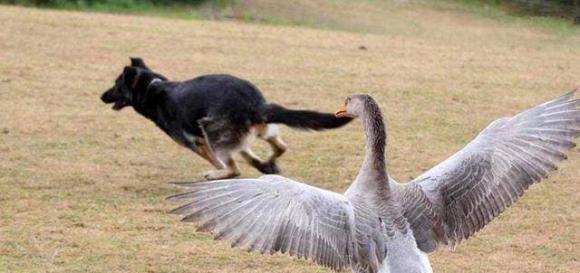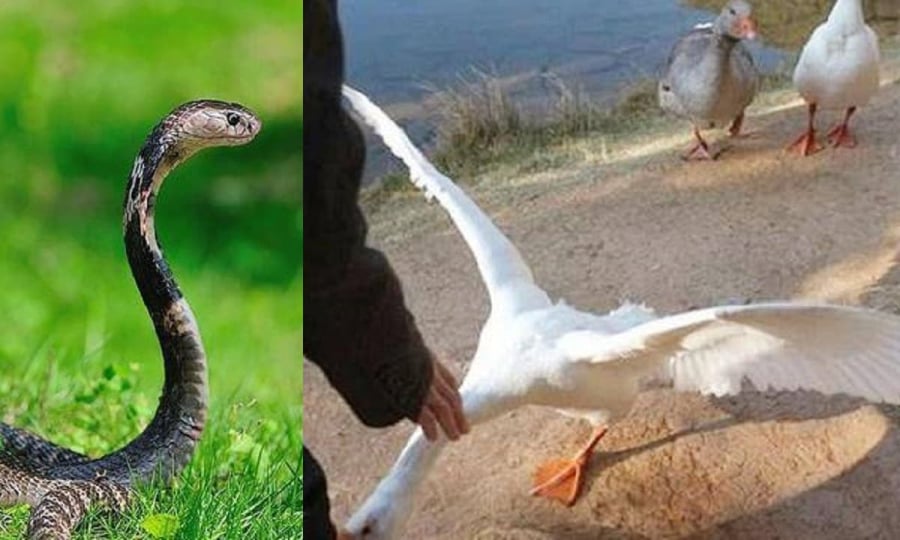Geese make for impressive pets. Most animals fear them, including snakes, which tend to stay away. Why are animals, in general, so afraid of geese?
“The Mighty Wild Goose”
Despite geese not being common household pets in human lives, wild and domesticated geese are closely related. Today’s domesticated geese are a type of wild goose that, over time, bred with other species, creating a new animal: the domesticated goose.

Domesticated geese are larger and more aggressive than their wild counterparts.
The difference between wild and domesticated geese is not significant. The latter are larger and exhibit more aggressive behavior than wild geese. While the temperament of domesticated geese is not typically mild, human intervention has led to physical changes, making them stronger.
So, why haven’t geese disappeared, and how have they managed to guard homes and drive away creatures like snakes? Geese have a robust physique and are highly adaptable. They used to live by lakes and rivers and often had to swim in icy waters, so they developed webbed feet, enabling them to swim faster and more efficiently. Additionally, they have sharp claws on their webbed feet, making it easier to hunt for food and defend themselves.
Geese also have serrations along their bills, which help them tear food into manageable pieces and serve as a means of self-defense. They have sensitive taste buds and will only slowly eat food they enjoy, spitting out anything they don’t like immediately.
In the wild, geese dominate other animals due to their physical strength. During combat, they signal to each other, coordinating with their flock to protect one another. They also excrete their droppings, which have an unpleasant acidic odor, to ward off potential threats and ensure the flock’s safety.
Snakes Also Fear This Mighty Fowl

Snakes will flee upon smelling goose droppings.
When faced with geese, snakes become timid. While snakes are often considered dangerous, there are variations within this group, and each species is uniquely adapted to its environment. In nature, they coexist with various other species.
However, when encountering geese, particularly during their breeding season, snakes become hesitant and cautious. Geese are vigilant while incubating their eggs, smearing their droppings around their nests, which snakes find repulsive and tend to avoid.
The smell of goose droppings is enough to send snakes slithering in the opposite direction. Thus, in the dynamic between snakes and geese, the former exhibit increased timidity, while the latter display heightened aggression. Geese can alert their flock with loud honks and produce foul-smelling droppings, ensuring their safety and making even snakes more hesitant to approach.
The Secret to a Prosperous Home: Unveiling the 3 Key Indicators of Success
In Feng Shui, a prosperous home is one where wealth and opportunity flow abundantly, creating an environment of success and ease. This prosperity isn’t just about financial gains; it’s about a life filled with blessings and a sense of contentment. By harnessing the principles of Feng Shui, you can create a home that attracts and nurtures this abundance, bringing good fortune and harmony to all who dwell within.





































